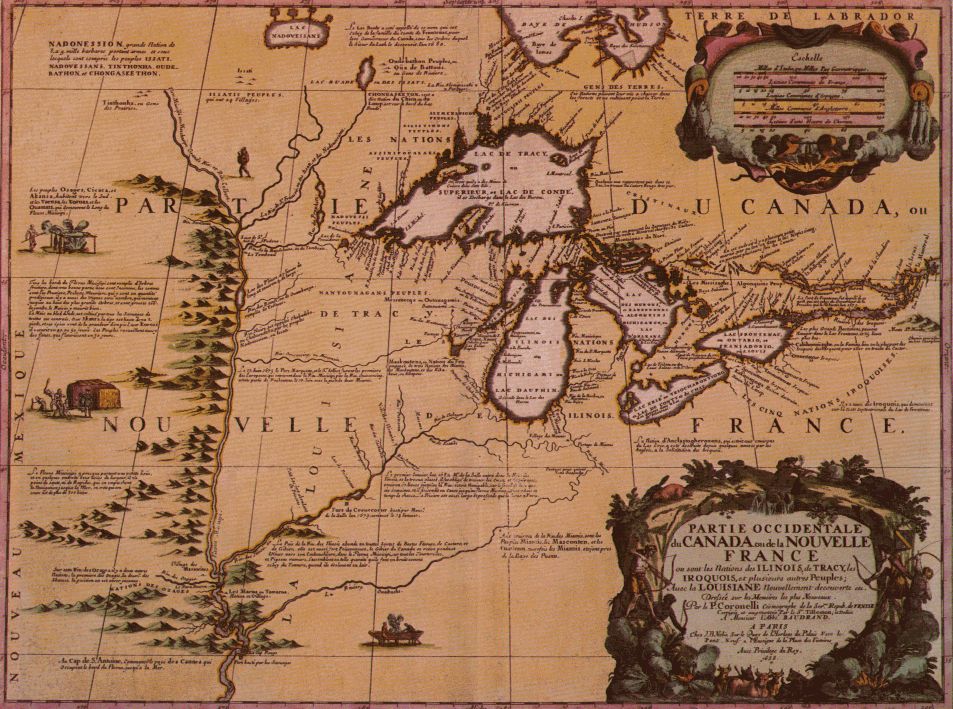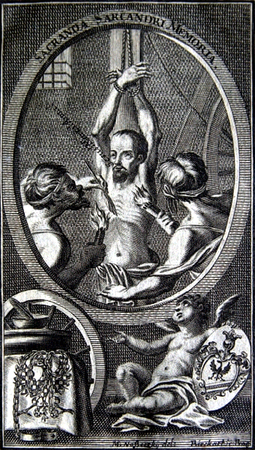I've always enjoyed looking back at one aspect or period of history and reminding myself of all the other things happening at that same time. You know...taking a look at the bigger picture going on around the world.
Take for instance the year 1620, the date which generally marks the beginning of the American colonial period. In that year 102 pilgrims embarked from Plymouth, England on the Mayflower along with 30 crew bound for the new world. Later that same year those pilgrims signed the Mayflower Compact and established Plymouth Colony. We tend to look at most of the world's happenings back then through the lens of what the pilgrims were doing. That's the way we learned it as kids.
Plymouth Rock
When I was a child trying to grasp history, I had the unfounded notion that the pilgrims were the only Europeans in North America at the time. The "New World" was really new! I relegated the Spaniards to explorations in Central America far, far way (another thing I had wrong). The rest of the world ceased turning in light of the colony being established in Massachusetts.
But in fact, by the time the Pilgrims landed, there had already been a lot of exploration going on just to the north (in Canada), across the Great Lakes, and down the Mississippi to the Gulf. The French had been working at establishing themselves on the North American continent for many years before the pilgrims arrived. In 1620, whilst our intrepid pilgrims were setting sail away from Europe, Henri II, Duc de Montmorency was named Viceroy of New France. With Samuel de Champlain as his lieutenant, he began construction of Fort Saint Louis on the cliffs of Quebec. He then formed a company that was granted an 11-year fur trade monopoly in the New World.
If you remember my earlier posts, you'll recall that fur was the cornerstone on which the entire North American economy was built, so France definitely had the first foothold.
Meanwhile, King James I got it in his mind to commission William Alexander to reclaim New France and Acadia, and the coureur des bois (the free fur traders) founded the trading post called Palace Royal in present-day Montreal.
All while the Pilgrims were just trying to survive their first year on North American shores.
I mention all this because of of how very important it is to understand our developing nation as a whole. While the arrival of the pilgrims was a huge event that we look to when we consider the colonial period, North America was already being shaped by others, some indigenous, and others as explorers, businessmen, priests, soldiers, and adventurers.
Just for fun and further insight, here are a handful of other important events that took place around the world in 1620:
A 1715 etching depicting the torture of John Sarkander
*St. John Sarkander, a Polish-Moravian priest, died of injuries sustained by prolonged torture. It's a long story, connected by ongoing conflicts between Catholics and Protestants in Europe's Thirty Years War, which had begun only two years earlier.*The first merry-go-round was seen at a fair in Turkey.
*The mother of Johannes Kepler, German astronomer, mathematician, and astrologer, was arrested for witchcraft.
*Witch hunts also begin in Scotland.
*The modern violin was developed.
*An navigable undersea boat (type of submarine) was demonstrated in the Thames River, England.
*A sign alphabet was developed by Juan Pablo Bonet, a teacher of deaf children in Spain.
~~~~~
Are there periods of history or specific historical events that you enjoy studying within the larger context of what was taking place in the world at that time?
Naomi Musch





Thank you for sharing this interesting information.
ReplyDeleteThanks for reading!
DeleteFascinating! I never knew! Thanks for sharing, Naomi.
ReplyDeleteSo many amazing things to think and learn about. Thanks!
DeleteLoved this!! ❤❤❤ I really enjoy this approach to history. The homeschool curriculum we used, in fact, includes a handful of books that utilize this method: Augustus Caesar's World, George Washington's World, and at least one other. Thank you, Naomi!
ReplyDelete